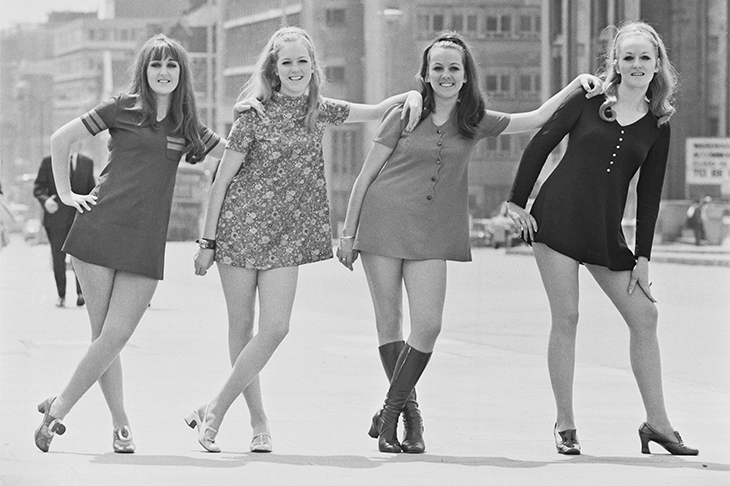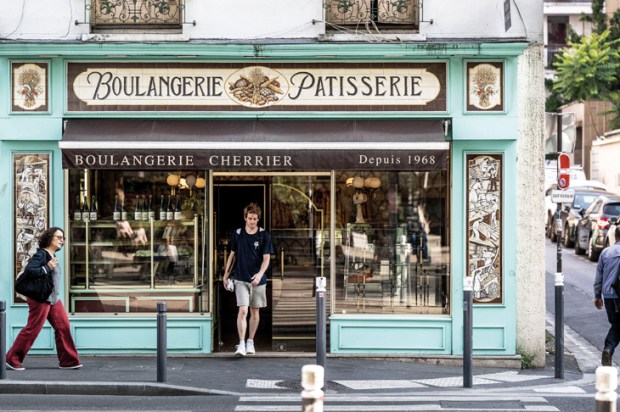This week marks the 50th anniversary of my election to the House of Representatives on 25 October, 1969. What has changed since then? What is better? What is worse? Do we have a more vibrant democracy than we had 50 years ago? Or are things much the same? My conclusions: there have been enormous changes, very few of them have been for the better and, like a lot of changes, most have been for the worse. Here are my twelve most significant changes, more or less in order of importance.
1. Far and away, the most significant change has been that government is much bigger and more intrusive than it was in 1969. There are more departments and ministers, the cost has increased astronomically, more laws have been passed to empower the giant machine and government has wormed itself into every nook and cranny of life like virulent lantana. Has this produced a better society? I doubt it.
2. Government used to be smaller, cheaper and more efficient because it did what it was supposed to do – deliver services. The services were those that people could not provide for themselves. Nowadays, the whole government leviathan is bloated because government has expanded into giving away things that people have not asked for, do not need and which they should be able to do for themselves. Government is now like Santa Claus working up an endless list of giveaways. The civic motto today must surely be ‘Ask and you shall receive’.
3. The inevitable result is that governments spend and waste too much money. Just think of the billions spent on the National Broadband Network and wasted on a lot of social welfare.
4. Included in these new fields of government activity are not just services, but beliefs, rights and wrongs, judgments on human behaviour and a pre-occupation with feel-good causes like foreign aid, refugees, harassment, aggressive human rights and the offence industry, where government encourages people to be outraged and seek damages.
5. Government used to be there for those who needed it. Now, it goes hunting for new work. Departments have ‘clients’. Public servants such as Tim Soutphommasane have been allowed to get away with openly touting for complaints to be made. Even the Coalition is foolishly about to appoint yet another rights behemoth, the Commissioner for Religious Freedom, soon to be drumming up trade.
6. The parliament is vital in a democracy. But ours is too big. There are too many elected members; the available work could be done by half the number. Two factors have contributed to this. First, the gigantic and entirely unnecessary new Parliament House with its luxury offices and committee rooms and also the numbers and over-generous entitlements given to MPs’ staff, some with grandiose titles like Chief of Staff. Work has to be found to fill those committee rooms and occupy MPs’ staff and what better than to invent new things for the government to do! The overall perks are too many and too generous. I left parliament when they decided to give motor cars to members and senators, scandalously unjustified.
7. The parliament is now boring. It was not always so and need not be so now. It used to be a place for quick wit and powerful speeches made off the cuff. Today it is about as amusing as the Melbourne Comedy Festival, which tried to crucify Barry Humphries for not toeing the elitist party line. The parliament is boring because of the rise of computers and social media, which are stultifying the brains of MPs. There is no repartee, because MPs are reading speeches, not speaking from the heart.
8. Most parliaments consist of members who are failures in life who have never had a real job. In 1969, virtually every trade and profession was represented; now, very few are. In 1969, there were MPs with defence force experience; now, they are more interested in inventing new war crimes and alleging Australian troops have committed them. The gene pool in state and federal parliaments is now about as varied as one of those deposed European royal families. The result of their labours is the same – moribund.
9. We are becoming racists. The rise of the Aboriginal Voice to the parliament and the Victorian ‘treaty’, separate electoral rolls, the right to be a candidate and the right to legislate are all granted on the basis of race. It is worse than South Africa was, because we are voluntarily walking into it, knowing where it will end – division, hatred and ever increasing demands is for money.
10. The press gallery is no longer a detached observer and reporter. It was wrongly allowed to become part of the new Parliament House and is now an active player, as it gives opinion and takes sides. Journalists should be at the vanguard of stopping this trend, as the more they are participants in politics the more they lose the respect the public used to have for them.
11. Journalists have also forgotten how to ask questions. But they see their role as not to ask, but to lecture and harangue. That is why many interviews are worthless and they get nothing out of the subject, who is on the defensive and clams up.
12. The main function of government seems to be to facilitate the dissolution of an ordered society which is not there by accident, but because we have adopted it over centuries, we like it and it works. It has become our tradition and our culture. Thus, traditional marriage and adoption, the nature of being born as male or female, the constitution, our social cohesion, all these and more are under attack, and are not being protected or enhanced, as they should be. I prefer government and the parliament as they were in 1969.
Got something to add? Join the discussion and comment below.
Get 10 issues for just $10
Subscribe to The Spectator Australia today for the next 10 magazine issues, plus full online access, for just $10.
You might disagree with half of it, but you’ll enjoy reading all of it. Try your first month for free, then just $2 a week for the remainder of your first year.















Comments
Don't miss out
Join the conversation with other Spectator Australia readers. Subscribe to leave a comment.
SUBSCRIBEAlready a subscriber? Log in